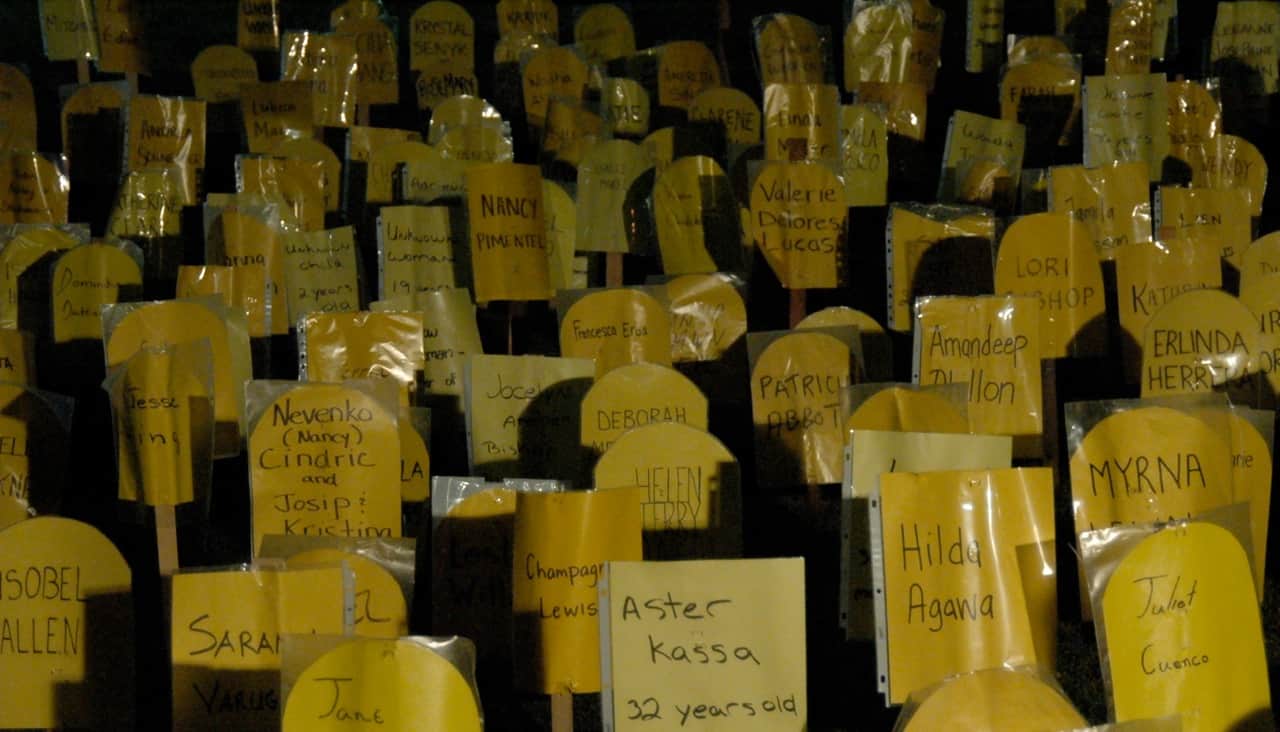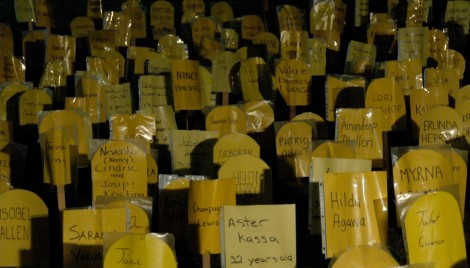More than 100 women and men gathered in a candlelight vigil at Philosopher’s Walk on December 6 to mark the National Day of Remembrance and Action on Violence Against Women.
Attendees at the vigil gathered near a sea of paper tombstones, representing women who have been murdered in Ontario since 1990. “It’s my seventh vigil,” said Eve Hoffman, a member of Women Won’t Forget. Hoffman noted the growth in the number of tombstones at every memorial. “To add 20, 30 new names each year, just in Ontario, it’s not okay to me.”
Parliament established the Day of Remembrance and Action during the early 1990s, in commemoration of the 1989 Montreal Massacre, in which 14 female students were killed at the city’s École Polytechnique. The man responsible for their deaths, Marc Lepine, claimed that he was “fighting feminism.”
The Toronto-based feminist organization Women Won’t Forget has held an annual vigil on Philosopher’s Walk since December 6, 1990.
The day is also meant to mark the broader phenomenon of gender-based violence against women. According to data collected by Statistics Canada in 2008, women are over 10 times more likely to be the victims of police-reported sexual assault than men.
During the event, multiple speakers from local organizations stressed the disproportionally high rate of violence experienced by women from marginalized groups such as immigrant, disabled and Aboriginal women.
“Canada needs to wake up and see the body-count: a thousand plus missing or murdered Aboriginal women in Canada is an atrocity. This is genocide,” said Angel Wolfe, a 19-year-old activist whose mother was murdered by Robert Pickton.
Wolfe says she believes Pickton was able to go on killing women from Vancouver’s Downtown East Side for years before being caught because many of his victims were from marginalized communities: sex workers, drug addicts, the poor or Aboriginals. “They were already forgotten in society’s eyes,” says Wolfe.
Many speakers also underlined specific action that could be taken to diminish gender-based violence.
Susan Young, director of the Ontario Association of Interval and Transition Houses, called on the federal government to generate a comprehensive national action plan to end violence against women. She noted that any solution must address women’s poverty, affordable housing and childcare.
“Economic security and safe housing are essential for women to be able to leave violent situations,” said Young.
According to the North York Women’s Shelter, which provides assistance to women escaping abuse, two-thirds of the women who contact the organization are turned away for lack of resources. According to their staff, 71 per cent of women who utilize the shelter return to their abusive partners as a result of a lack of funding for transitional housing.
Other recommendations included improved addictions services, reinstatement of the gun registry and a national public inquiry to assess and respond to the scale and severity of violence experienced by Aboriginal women and girls.



